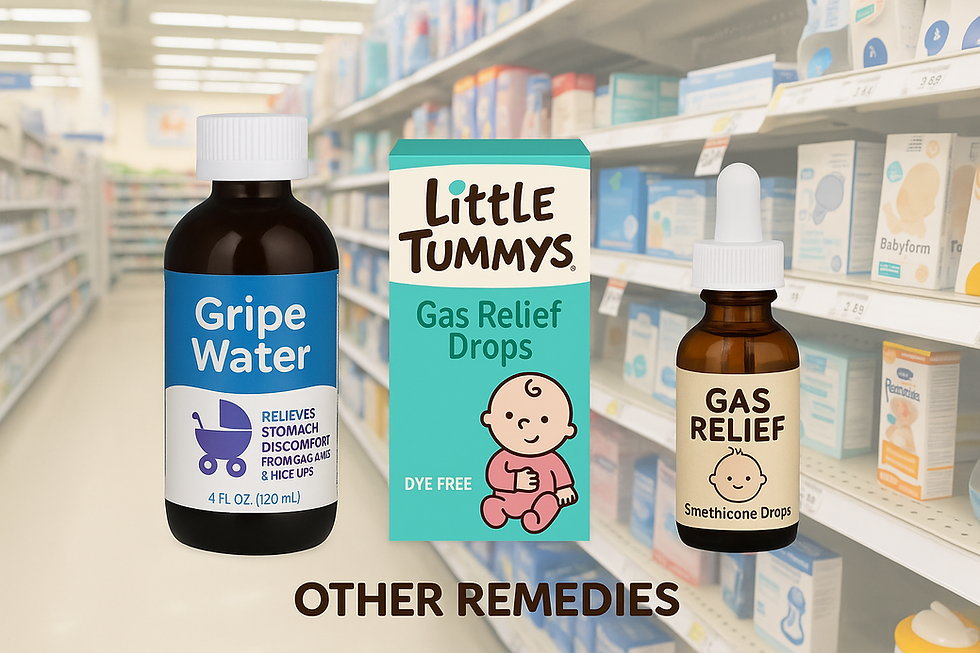My Baby Hasn't Pooped for Two Days!
- Colleen Mckay
- Aug 2
- 1 min read
Many parents think their baby is constipated when they strain or grunt, but here’s the deal:
Newborns may poop several times a day—or only once every few days
Straining without hard stools is usually normal (it’s called “infant dyschezia” and it passes)
True constipation means hard, dry, pellet-like poops or noticeable discomfort
💡 Breastfed babies can go up to a week between poops and still be totally fine!
If you’ve stood in the formula aisle feeling like you’re decoding a secret language—hydrolyzed? soy? comfort? AR?—you’re not alone. One of the most common reactions to baby digestive issues is wondering: “Should I try a different formula?” And sometimes, yes—that can help. But often, the issue isn’t the formula itself, but how your baby’s body is adjusting.
🧪 Signs It Might Be Time to Switch:
Consistent fussiness after feeds that doesn’t improve with bottle or positioning changes
Blood or mucus in stool (always worth a call to your pediatrician)
Frequent vomiting, not just spitting up
Chronic eczema, rashes, or signs of a possible milk protein allergy
Refusing feeds or showing discomfort during feeding despite slow flow nipples and burping
These may suggest an intolerance or allergy—usually to cow’s milk protein, the base of most formulas. In that case, your provider may recommend trying:
Formula Type | Best For |
Gentle/Lactose-reduced | Gassiness or mild fussiness |
Hydrolyzed (partially or extensively) | Suspected protein sensitivity |
Hypoallergenic (amino acid-based) | Diagnosed milk protein allergy |
Soy-based | Rarely recommended first-line—only in specific allergy cases |
Important: Unless your pediatrician advises otherwise, avoid switching formulas multiple times quickly. Babies need time to adjust (often 7–10 days) to a new formula.



Comments